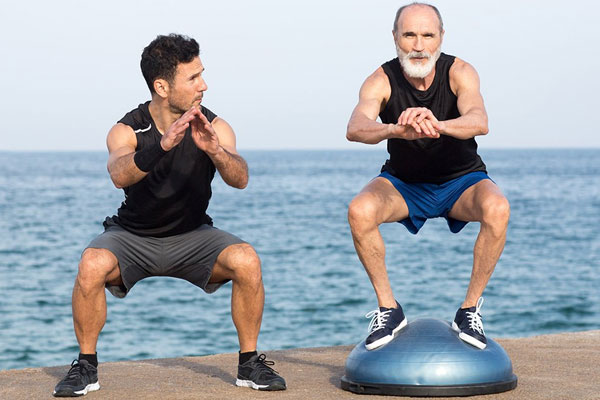What is my Resting Heart Rate

What should your resting heart rate be?
Long gone are the days of having to measure your resting heart rate by placing two fingers against your neck and watching the clock. Now, it's as easy as firing up a smartphone app or saying, "Siri, what's my heart rate?"
Interpreting the Numbers
But interpreting the number you get back? That can be a bit more complicated.
What's considered normal can vary widely from person to person, but in general, your RHR should fall between 60 and 100 beats per minute. If your RHR is consistently above 100 beats per minute (a condition known as tachycardia), you should consult a doctor, especially if you're experiencing other symptoms, such as chest tightness, fatigue or shortness of breath. A high resting heart (ie >100 bpm) can mean many things, You may be dehydrated, have a poor level of physical fitness, or it could be a sign of something more serious with your heart or lungs.
If you're not particularly fit and your RHR is consistently below 60 beats per minute, you may have bradycardia, which can be accompanied by lightheadedness, dizziness, or chest discomfort. A slow heart rate can likewise mean many different things, It could be completely normal, a sign of excellent physical fitness, or it could signify a heart problem. If your resting heart rate is significantly below 60 and you don't feel well, you should go to the doctor and get an EKG.
When measuring your RHR, keep in mind that there are a number of things that can affect your reading, including:
Age:
RHR can decrease with age, according to some studies.
Gender: On average, women's RHR tends to be two to seven beats per minute higher than men's.
Air temperature:
RHR can increase during hot weather, but usually not more than 10 bpm.
Emotions: Strong feelings of stress, anxiety, or even happiness can raise your RHR.
Body position:
RHR can be 3 bpm higher when sitting versus lying down. Similarly, RHR tends to increase a bit upon standing.
Medication:
Prescription drugs like antidepressants and beta blockers can cause your RHR to be higher or lower than it would if you weren't taking the medication.
So your resting heart rate is normal -- now what?
Congrats! A normal RHR reading is definitely a good thing, but if you're monitoring it for fitness or wellness-related reasons, it's not the only thing to pay attention to. That's because "normal" doesn't necessarily equal "healthy."
In fact, in a recent study, middle-aged men who had a RHR of 75 bpm or higher at the start of the study were twice as likely to die over the next 11 years, compared to men with a RHR of 55 or below.
"Ideally, you want your resting heart rate to be somewhere between 50 and 70 bpm.
But I don't think that people need to be obsessively checking. Once a month is totally fine. Something also very important is how quickly your heart rate comes down after you exercise. We want to see that your heart rate is slow at rest, that it increases appropriately with exercise, and that it comes down quickly after aerobic activity -- within a few minutes.

The take-away.
Regardless of which method you use, when trying to gauge how healthy you are, one thing is certain: Any results should be considered alongside other metrics, like blood pressure and cholesterol, in consultation with your doctor, especially if you notice changes over time.
… Just do something. The results will Come!!!!
Call Steve, In-Training Sports | 561-281-8330
In Training Sports
www.intrainingsports.com
Personal Trainer,
servicing West Palm Beach, Palm Beach, Wellington and Jupiter Florida
3131 Village Blvd, #305
West Palm Beach, FL 33409